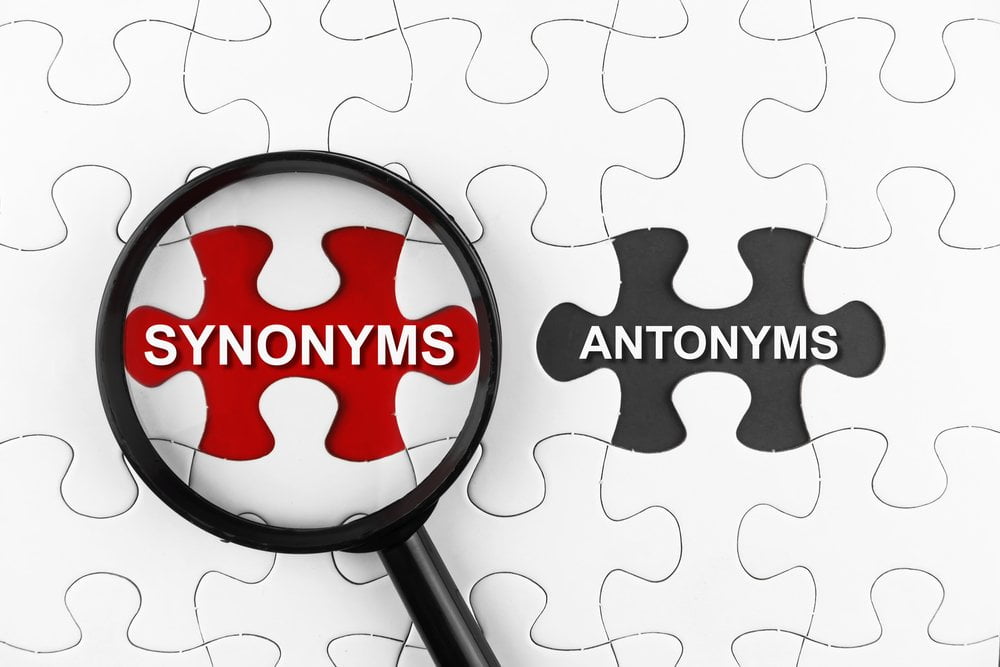We have all often times opened up a dictionary to see the meaning of a word or a phrase. But have you ever referred a thesaurus? It is like a dictionary that contains all the synonyms and antonyms of all the words? So what exactly are synonyms and antonyms? Let us find out.
Suggested Videos
Synonyms
A synonym is a word, or in some cases a phrase that has the same meaning as another word with regards to the same language. If the meaning is not exactly the same, the words have very similar meanings in the context.
When two words are synonyms of one another, we call them synonymous words. Let us take the example of the word “jump”. The words leap, bounce, hop are all synonymous to jump, i.e. they have the same (or very similar) meanings.
What are the different Types of Phrases?
At some times there are cases where the word has more than one meaning. The meaning of the word can only be judged by the context in which it has been used as a sentence. In such a case the synonyms of the word will also differ according to the context. Let us take the example of the word “free”.
- One meaning of the word free is to be without restrictions, and in this case, the synonym would be ‘independent‘.
- Another meaning of the word free is to be free of charge, and so here the synonym would be ‘complementary’ or ‘gratuitous’.

(Source: artisticenglish)
Browse more Topics under Vocabulary
Antonyms
Now as opposed to a synonym, an antonym is a word whose meaning is exactly opposite to another word, in the same language. It originates from the Greek word “anti” which stands for opposite and “onym” which stands for “name”. For example the antonym for hot is cold, and the antonym for up is down.
Antonyms are actually quite useful in the English language. At times it is easy to understand the meaning and the context of a difficult word, by knowing what the opposite of the word means. Take for example the word “mundane” whose synonym is “humdrum”. The antonym for mundane is “extraordinary” or “imaginative”. Now the word mundane has much better clarity.
Even while writing, one may be using the same words too often making the prose drab and boring. Using antonyms, without changing the meaning of a sentence, can be a good way to make things interesting.
Examples of Synonyms and Antonyms
| Word | Synonym | Antonym |
| Abundant | Plentiful, Ample | Scarce, Sparse |
| Appeal | Attract, Interest | Bore |
| Elaborate | Detailed, Inticrate | Simple, Plain |
| Optimistic
|
Bright, Promising | Pessimistic |
| Boisterous | Lively, Exuberant | Quire, Restrained |
| Inept | Incompetent, Unskilled | Competant |
| Soothe | Ease, Relieve | Aggravate |
| Linger | Stay put, Remain | Vanish |
| Vital | Essential, Crucial | Unimportant |
Solved Question for You
Q: Choose the option which means the opposite of the given word: Copious
- Plentiful
- Revenge
- Scarce
- None of the above
Ans: The answer is C. Copious means in abundance or plentiful. So the antonym is sparse or scarce.
Q: He was truly pleased with his life. Replace the highlighted word with an appropriate synonym from the following.
- Content
- Regards
- Irritated
- Contents
Ans: The answer is A. Pleased means happy and satisfied. So the sentence will be “He was truly content with his life.”







this thing really helped me
Just a quick info for you because I believe you have a minor error in your definition on verb phrases. In the example ‘They have been playing since the last two hours’ shouldn’t it be ‘for’ instead of ‘since’ regarding the fact that ‘the last two hours’ is a period of time and not a certain point in the timeline in which case you were to use the word ‘since’? Other than that this is a useful guide to tha different types of phrases in the english language 🙂